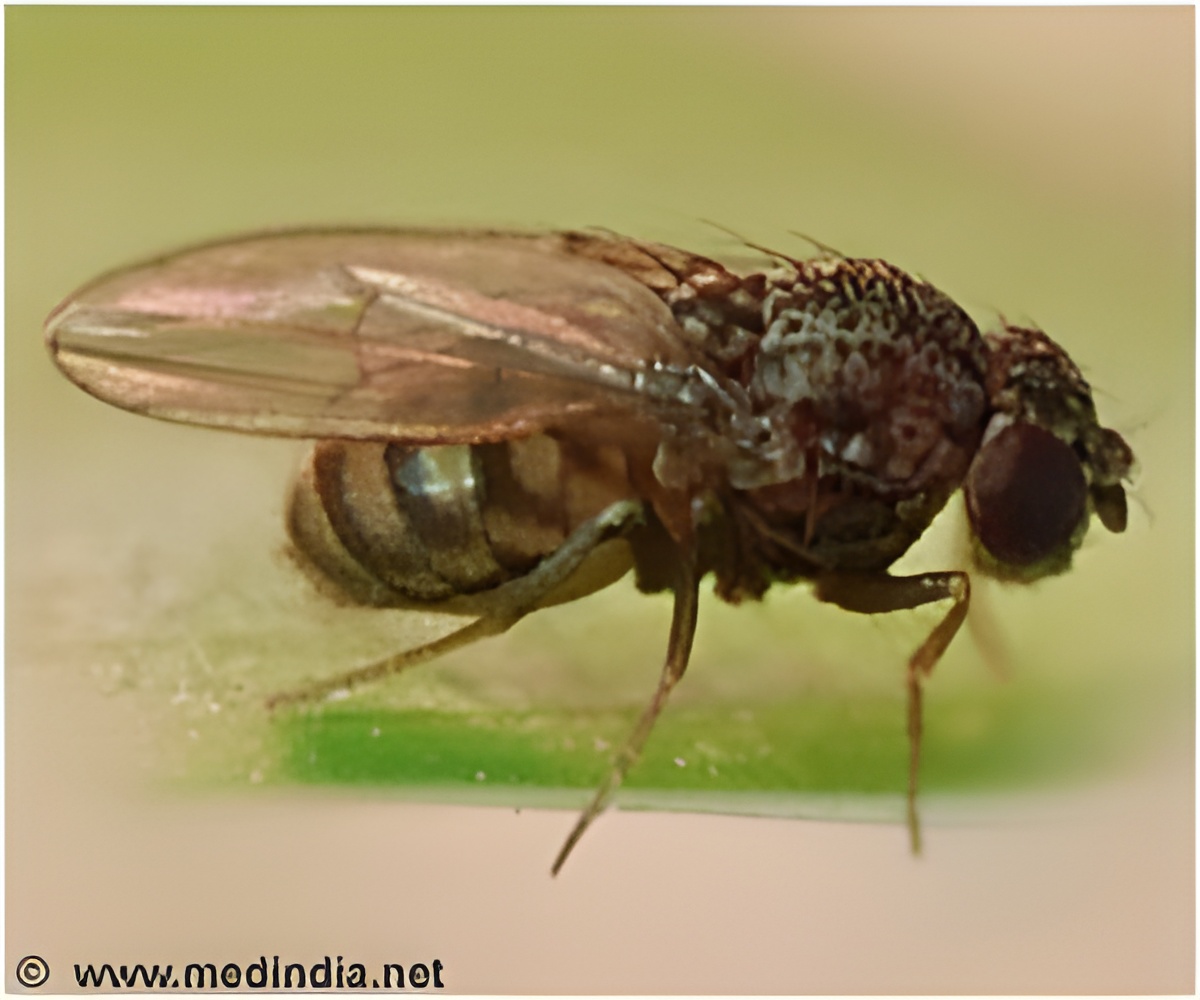Researchers have discovered that a synthetic and commonly used laboratory chemical, mifepristone, can extend the life span of female fruit flies by 68 percent.

Researcher John Tower and Gary Landis grew suspicious of the hormone mifepristone that they and others were using to activate the genes. It is a synthetic chemical known to terminate pregnancy in humans. Previous studies have shown that reproduction shortens lifespan in flies and other organisms and so researchers wondered if the hormone they were using could be affecting reproduction in flies, and in turn their life span.
They found that flies exposed to the hormone laid only half the usual amount of eggs and lived 68 percent longer, from a median age of 56 to 94 days. They also found that mifepristone had little or no effect on the life expectancy of female flies that had not mated, which had an even better overall survival rate and maximum lifespan.
Tower added, "This opens up a new line of inquiry for longevity studies, and identifies candidate genes and mechanisms for regulating the trade-off between reproduction and lifespan that may be shared with humans. It does, however, mean that their earlier longevity studies that relied on mifepristone as a gene switch will need to be reevaluated."
The findings are published online in the journal Aging.
Source-Medindia















